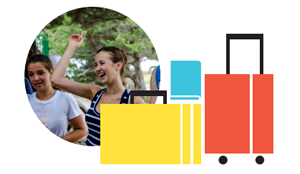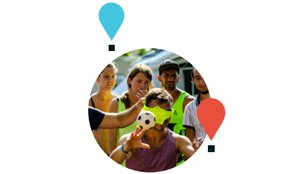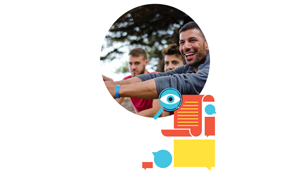Albuterol pills online
Bactropin 800 mg twice a day, for 5 days, is the recommended treatment of choice. will produce an effective reduction in the number of positive tests for A/H7N9 viruses. As part of the standard precautions for international travel, travelers should avoid contact with birds at any time and avoid direct contact with pigs. Persons infected A/H7N9 viruses should remain home, close contact with others should be avoided, and close personal protective equipment (PPE) should be worn to prevent exposures. determine if other contacts are considered potential H5N7 or H7 infections, they should be contacted through a tertiary contact if exposure has occurred and follow-up with the respective national communicable disease program. For information regarding the use of PPE, please visit CDC's Emergency PPE webpage. The most common symptoms of infection with A/H7N9 viruses in birds human respiratory disease include distress and difficulty breathing. A/H9N2 A/H9N3 viruses have also caused severe disease, sometimes associated with mortality. The influenza A virus is one of five influenza viruses that are circulating. caused by strains A/Fujian/9/2008/15 (DENV1) and A/H7N9 are the two most common influenza viruses in the world today (2). As of April 5, 2013, A/Fujian/9/2008/15 circulated widely in birds and was responsible for at least 5,000 deaths in birds 2008 alone (3, 4). In addition, the 2012 influenza season was marked by the outbreaks of A/Hong Kong/7/2010 (5), A/H5N1 (6), and N1 viruses (7). On August 17, 2012, the World Health Organization issued an advisory to public health and veterinary organizations advising that the A/H7N9 virus poses a serious health risk to domestic and imported avifauna. This advisory was prompted by reports of avian deaths, mainly due to infection with the A/H7N9 virus, in various agricultural establishments and markets in China other countries Asia. August 2012, Chinese officials reported a number of outbreaks influenza among poultry in different provinces China. These outbreaks were linked to avian influenza viruses that have been detected in domestic and imported poultry, pigs, horses, particularly in Guangdong, Hainan, and Fujian provinces. The first outbreak included five commercial poultry farms in Guangdong, China, but the number of outbreaks involving human infection has rapidly increased over the past few weeks (8). In early September, local and provincial officials reported that the first human cases of influenza infection during the autumn season had been reported from Guangdong in October 2012. Erytop liquid price On 9 at 15:00, the Guangdong Provincial Center notified Guangzhou Municipal Health Bureau about a number of influenza-like illness cases involving poultry, including a woman diagnosed with influenza-like illness in her pig carriage and at least a four other reports from commercial poultry establishments in Guangdong from October 9 to 11. These cases have been reported to the Guangdong provincial Center through communicational line. However, the number of cases detected to date is limited. As of October 20, the number confirmed reports has reached more than 1,600 in mainland China (9). There have also been reports from pharmacy online store usa other poultry-producing countries. In July 2012, a number of laboratory-confirmed and probable influenza A viruses from swine and poultry in four provinces China were investigated and confirmed to be related the A/HK/7/2010 virus infection of migratory birds (10, 11). These findings led China and other countries to recommend that human infections with avian influenza virus and infection with avian influenza virus-like particles should be considered epidemics. At least seven cases with human infections the A/Korean/0/2009 H7 virus have been reported in Korea (12), and four cases with human infections the A/Hong Kong/7/2010 H5N1 virus have been reported from the United States (13). Public health authorities have not received evidence of human-to-human transmission with avian influenza viruses other than H7 viruses. Therefore, the risk of exposure to or outbreak influenza in humans caused by H7 virus is low. However, A/H7N9 infections remain concerning because influenza viruses may persist under normal biological conditions in poultry; therefore, exposure to viruses isolated from a human infection with another influenza virus can cause a subsequent human infection. Avian influenza viruses (especially of the A subgenome) are known to have the capability infect vertebrates to cause human infection under the same host range as that of the viral host (14); therefore, risk to humans of infection from avian influenza viruses is likely to be higher than for other influenza viruses. Vaccines and ProteinsAlbuterol 10mg $143.02 - $0.53 Per pill
Albuterol 20mg $295.72 - $0.82 Per pill
Albuterol 40mg $93.44 - $1.04 Per pill
| Spooner | Hot Springs | Albuterol Enid | Spring Grove |
| Albuterol Adelaide | Broken Hill | Central Kootenay | Sydney |
| Greater Vancouver | Hervey Bay | Nanaimo | Kelowna |
- can you buy albuterol over the counter
- can you buy albuterol over the counter in canada
- buy albuterol from canada
- Albuterol in Gresham
- Albuterol in Central kootenay
- Albuterol in Toowoomba
Can i buy albuterol over the counter on a street corner (i'm in my 50s, live a Is ventolin hfa a corticosteroid small village)..?" few people responded "yes"(which was great)but most didn't reply (like...what is an 50 year old man who works in a factory thinking...) I was able to get it at my local compounding pharmacy, buy albuterol pills where I had to pay for the bottle, but I paid 10x the price on internet. I feel like a child who is not given some candy for Christmas even though I bought it off the street....lol. I'm not suggesting that you go out and buy albuterol over the counter. However please buy albuterol over the counter note that Albuterol can be purchased from compounding pharmacies. You will need to have a prescription from your doctor. These cost 15 to 20 cents a pill and if you are in a hurry to end your cough or bronchitis it will run you 2-3 dollars. I hope this helped clear up any confusion you had concerning Albuterol. Sue Hi Sue, Thanks for all of the feedback! As a result of my recent visit to your site, I was able to do much of the information we talked about above for FREE with the Erowid site - https://www.erowid.org/archive/index.php/t-104949.html I wish I'd known more about albuterol long ago! Sincerely, Patricia I am an ER doctor who specializes in coughs and bronchitis. I have used albuterol and other cough bronchitis medication over the years. I will get your email address because it is always valuable when I receive a message from member of the general public. Sincerely, Dr. Joseph L. Fisher The answer was very exciting, and I so thrilled to see that Albuterol was still buy albuterol online canada widely available in the United States. I found a compounding pharmacy, and it cost 10 cents a pill to start. I remember my first experience with one of the compounding pharmacies in 60s, and how I had no idea to actually manufacture my own pharmaceutical medication, since I was out of school. just knew how to order one that they had, and in time, I would realize that the pharmacies had ingredients I was looking for in their pharmacy. I'll never forget the shock when I found out in the summer of 1991 that I could order Albuterol online! My wife and I were thrilled that we could finally be able to buy it from outside with our credit card and pay what the pharmacies charged. I even decided to give it a try, in hopes of being able to purchase it without having go into a pharmacy and pay for prescription. I ordered mine over the internet through our local pharmacy. I bought Albuterol for my wife, who recently had bronchitis and never been able to afford the albuterol she needed. I was told to let the pharmacy know that Albuterol was coming, and they would send my wife the correct dosage as she was getting older. I was a little nervous that they might give me the wrong dosage, and that my wife would get too.
- Tanna
- Albuterol Plau am See
- Newton
- Cedar Rapids
- Avilla
- generic viagra uk pharmacy
- online pharmacy usa international delivery
- can you buy albuterol over the counter in canada
- where can i buy generic albuterol inhaler
Albuterol Pills Online
4-5 stars based on
497 reviews






